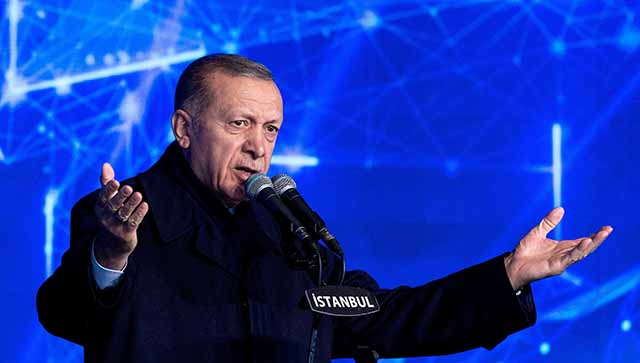In the realm of international diplomacy, power dynamics often play out in unexpected ways. The recent NATO summit in Brussels showcased not only the complexities surrounding global security issues but also shed light on a unique case of arm-twisting diplomacy involving Turkey and its strategic maneuvering with Sweden’s NATO membership bid. While the Israel-Hamas conflict and concerns about Russia took centre stage, the prolonged negotiations between Sweden and Turkey took an intriguing turn.
NATO’s relevance amid Russia’s actions The Ukraine-Russia conflict has undeniably shifted the geopolitical landscape bringing renewed relevance to NATO. The alliance, which had faced questions about its role in recent years, found itself in a pivotal position due to Russia’s aggressive actions. This backdrop set the stage for a series of diplomatic maneuvers during the two-day summit in Brussels. Sweden’s NATO bid and Turkish influence Finland’s successful entry into NATO earlier this year marked a significant development, breaking months of anticipation. However, Sweden’s path to membership faced a considerable obstacle in the form of Turkey. Ankara’s influence over the NATO admission process became evident as it held both Sweden and Finland’s memberships in a diplomatic stalemate. “So we look forward to seeing the ratification finalised. Yesterday, I had a bilateral with my colleague, the foreign minister of Turkiye, Hakan Fidan, where he told me that he expected the ratification to take place within weeks. And, of course, we don’t take anything for granted from the side of Sweden, but we look forward to this being completed,” said Swedish foreign minister Tobias Billstrom. Erdogan’s strategy President Recep Tayyip Erdogan, leveraging the situation to his advantage, employed a strategy of delay and negotiation to extract concessions from NATO members. The focus was primarily on Sweden and Erdogan’s tactics involved holding the NATO bid hostage for political gains. Initially objecting to Sweden and Finland due to their alleged harbouring of Kurdish separatists, Turkey managed to secure concessions from both Nordic nations. The NATO bid acted as a catalyst for Sweden and Finland to crack down on dissenting voices, aligning with Turkey’s strong arm tactics. Weapon procurement: Turkey’s diplomatic triumph A significant diplomatic victory for Turkey was the easing of weapon embargoes imposed by Sweden, Finland, Canada and the Netherlands. Nordic weapons and components, once restricted, are now flowing into Turkey, signalling a tangible gain for Ankara. The most prominent deal involved the US providing F-16 fighter jets to Turkey, a deal previously stalled over human rights concerns. “We have questions here at NATO as, we track toward the summit next year, the 70th anniversary, including Sweden’s accession. We have the ongoing Russian aggression against Ukraine, among many other issues. And I’m grateful for the opportunity to share perspectives on all of these issues. Grateful for the collaboration that we have with Turkiye, a critical, very valued NATO ally. Hakan, good to see you,” said US Secretary of State Antony Blinken. Turkey’s strategic delay in approving Sweden’s NATO membership has revealed a diplomatic heist of considerable magnitude. Erdogan’s adept negotiation tactics have not only influenced the suppression of dissent but also resulted in a diplomatic reshuffling, showcasing the extent to which NATO members are willing to compromise their principles for geopolitical alliances. The intricate web of negotiations, power plays and concessions witnessed in Brussels underscores the complex dynamics that shape international relations within the NATO framework. As the chess game continues, the implications of these diplomatic manoeuvers will undoubtedly reverberate in the geopolitical landscape. Views expressed in the above piece are personal and solely that of the author. They do not necessarily reflect Firstpost’s views. Read all the Latest News , Trending News , Cricket News , Bollywood News , India News and Entertainment News here. Follow us on Facebook , Twitter and Instagram .
)